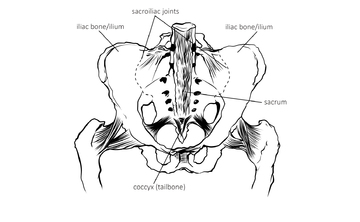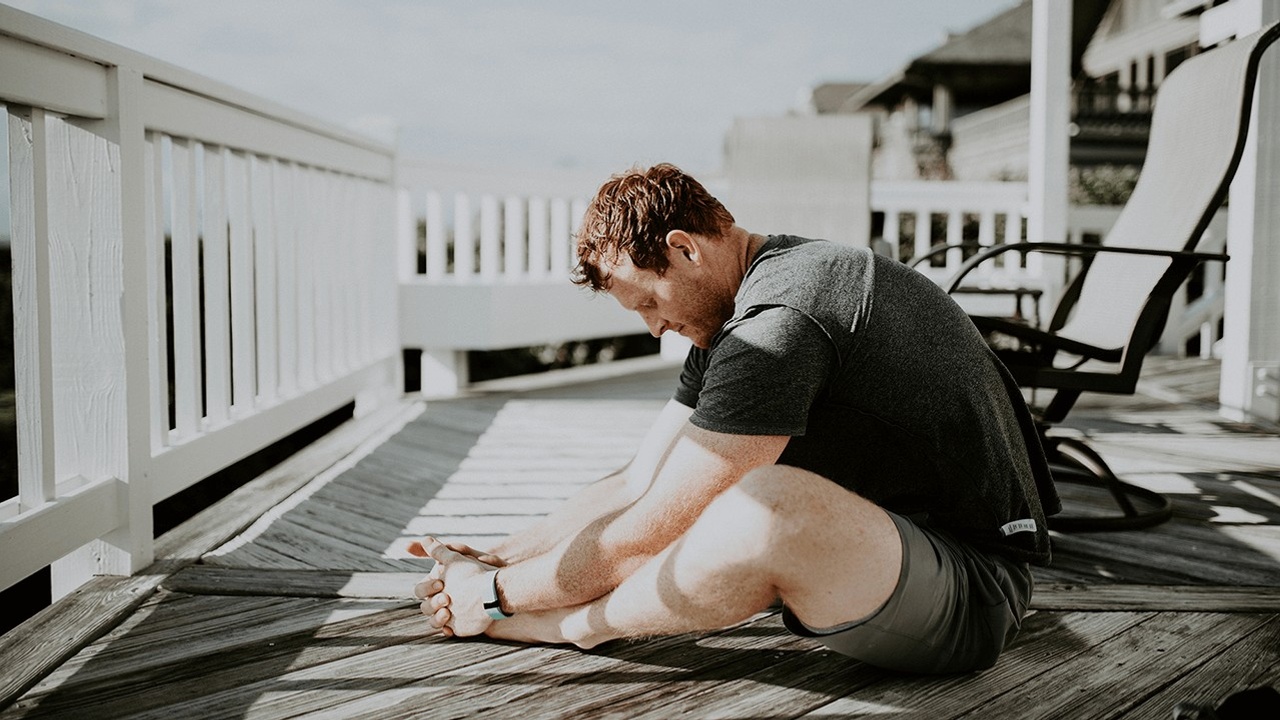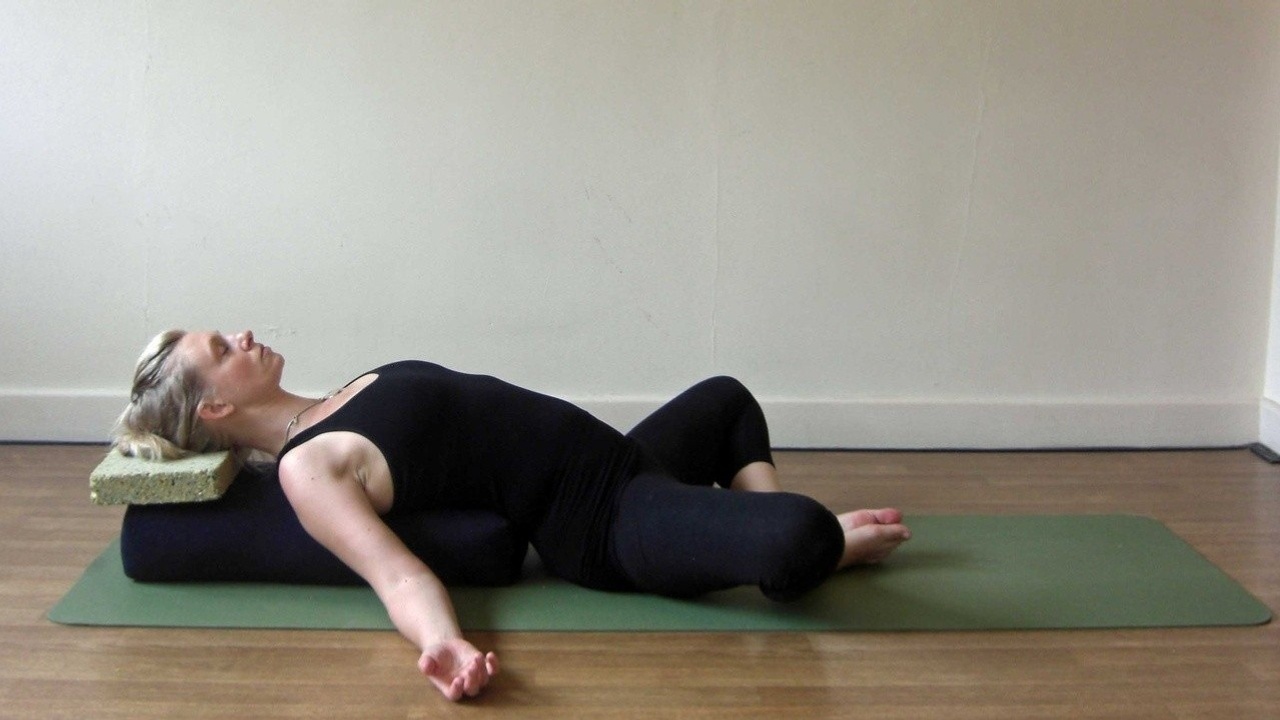Research shows that around 75-85 percent of the American population experience back pain in their lives (Neurol Clin.,2007;25(2):353-7). Contrary to much investigation into inflammation (such as arthritis) and more serious conditions, most of the root cause is understood to be structural and mechanical in nature – affected by the way we move, live and use our bodies day-to-day.
Those with sedentary jobs have higher incidence and less when they move around regularly (Indian J Occup Environ Med. 2016;20(3):125-128). Much sitting on chairs can shut down the natural outward range of motion (ROM) in the hips and alter the natural ‘C-curve’ of the lower back, creating a compression into the discs of the lumbar spine (the lower back) whether we tend to sink into a forward or backwards placed pelvis. Chair sitting and sofa slumping has replaced sitting on the floor, often cross-legged or with legs bent to one side on the ground in ways that our musculo-skeletal system evolved.
These body set...
With experts estimating that 80% of people will experience lower back pain at some time in their lives (Neurol Clin. 2007;25(2):353-71), this is an issue that is only getting worse as we spend more time sitting on chairs. It is no surprise that moving is an effective antidote for this debilitating issue (Spine. 2008;8(1)213-225), but the pain involved can create a Catch-22 cycle. The holding and fear of exacerbating the issue can leave people avoiding exercise, becoming confused about their capabilities, and what can help, and what can worsen their symptoms.
The sacroiliac (SI) joint

Understanding some lower back anatomy can help us make sense of why this area may become a source of tightness, pain or inflammation. Many issues arise at the SI joints, the two sites where the lowest bone in the spine – the sacrum – sits into the bowl-like bone of the pelvis (fig.1). These joints are calibrated to the very individually human bipedal way of standing, so the sacrum acts like a keystone ...
The Benefits of Walking on Uneven Ground
As humans, we have evolved to have certain patterns of physical activity that are necessary for health.1 In fact, we’re built for long-distance walking, and it’s estimated that our hunter/gatherer ancestors covered daily distances in the range of 6–16 km (3.5–10 miles). While walking may be our most natural form of exercise, humans learned this unusual mode of transport on rough surfaces—far from the predictability of pavements and man-made flooring.
All of our ancestors’ walking and running was done on natural surfaces like grass and rocks, and often over uneven ground. Our upright two-legged (bipedal) walking style evolved alongside a nomadic lifestyle that was not just for walking to new camps, but also for getting to and from sources of food, water and wood.2 It’s even theorised that part of our large brain growth was to address the various challenges of bipedal upright walking on naturally uneven ground.
Natural movement
Surfaces like c...
First published in What Doctor's Don't Tell You Magazine.
Anxiety is a common feature in life for many. The agitated, fearful and overwhelming sensations that it brings can ripple through our lives with devastating effect. For those who tend towards anxiety, overstimulation from situations or inner turmoil can trigger feelings of agitation and needing to withdraw. For those that need lots of space in life to find calm and regroup, a yoga practice can provide both a refuge and the nervous system soothing that can allow them to cope with the demands of life.
In our fast-paced and information heavy world, anxiety is on the increase as the ‘constant alert’ this continual input provokes becomes part of the landscape. Whether anxiety is trait – part of what are now commonly termed anxiety disorders, or part of a period of chronic or extreme stress or trauma, the feelings of dread, panic, loss of control, palpitations, hyperventilation, wanting to escape and unable to concentrate are very r...
Recovery and restoration
We can spend nearly two-thirds of our lives asleep, yet often place less importance on this crucial de-stressing time than our waking hours. Sleep is all about recovery – physical, emotional and energetic. In order to function fully and cope with the day’s demands, we rely on the immune facilities, detoxification, tissue and muscle healing and emotional processing that occur during the wee small hours. If this downtime isn’t respected, we may quickly see stress-related symptoms like fatigue, irritability, poor concentration, skin complaints and poor recovery from illness.
Lack of sleep, even at a small accumulative level can lead to craving sugar and stimulants as our bodies try to fuel up in the face of less vitally built-up energy. Indeed too little sleep has been associated with incremental weight gain through increased appetite for this very reason.
Blood sugar balance and calm for quality sleep
Sleep quality comes from balanced blood sugar levels throu...
Movement to help your body naturally move through trauma
The term trauma is used to describe the state an individual is left with after a shock or prolonged danger or distressing event has passed. Its prevalence in society has grown from the recognition of the symptoms war veterans were experiencing in the 1980s with the diagnosable condition Post-Traumatic Stress Disorder (PTSD).
This has also opened up to recognise that trauma does not just stem from large, traumatic events but can be as a result of Adverse Childhood Events (ACEs) and the definition extended to anything that overwhelms to the point where we can’t cope, on an individual basis.
The medical world has long viewed trauma as a purely psychological issue, although recent research shows it to be a full physiological response; a reliving in this moment of an event or felt state that came before. For those with trauma, this is the only way more primal, instinctual responses can make sense of the continual.
Trauma tends to...
Stretching can be something we look forward to or dread within our exercise regimens, so understanding its purpose and effects can create more depth and motivation, however we feel. Messages can be conflicting, so some simple basics can help us navigate confusion towards following your body’s needs.
Stretching for sports is not the same as in yoga; rather than looking to improve flexibility alone, static (still) stretching after exercise is designed to lengthen muscle shortened through use back to its normal range of motion (ROM). This is why dynamic (moving), rather than static is recommended for warm-ups. More flexibility ie more range through muscle and around joints may actually impede the action and strength of specific movements needed for sport.
We can’t actually lengthen muscle – this is already determined by its insertion and origin ie where it is attached and leads to in terms of bones and tendons – but we can lessen resistance to a stretch, where the nervous system doesn’t...
Simple and effective
One of the most popular recommendations I give to clients is dry skin brushing. This is a simple self-care home routine that can take as little or long as you have. Even doing for a minute a few times a week can have noticeably beneficial effects and most people find it is so enjoyable that it becomes part of their bathing routine very easily. Stimulating the skin in winter is important when it gets less exposure to the natural stresses of the outdoors.
Self stimulation!
The main aim behind skin brushing idea is to move out surface toxins and 'energise' your skin to get blood flow going. This is also stimulating your lymphatic system, the fluid channels of your immune system which run beneath the skin. As your skin is your largest organ and the second organ of detoxification after the liver (via the lymphatic system), brushing it increases the capacity of your skin to eliminate toxins, making it easier for your whole body to shed wastes. Dry skin brushing also r...
January is a time of new beginnings and even recalibration – taking stock of the aspects of our lives where we go awry and find ourselves going round and round in circles.
So much of where we can get stuck is based on old survival strategies learnt in early childhood and listening to these inner voices of what we need to feel safe and secure is a key part of moving through life in a stress-free way.
The more we can let ourselves off the hook of expectation and recognise our true needs, the less self-judgment we need to throw up and the kinder we can be to ourselves.
This is the stuff that can help us be free our reactions and behaviours that we might be fed up with with; turning to sugar or alcohol when we’re stressed, arguing with our partner or feeling a mental and physical exhaustion that stops us from exercising in the way we’d like.
For instance, my ‘resolutions’ last year were:
1. Notice when I’m close to or have become overwhelmed and respond…
2. Work less and only do what I...
We are always going through phases of change, whether we notice them as substantial or not. This January one can often seem like the motherload though, with high expectations and suggestions coming at us from all angles.... whether it's giving up something, doing something else or fixing that thing that is 'wrong' with us, there is a sense of this ideal, other self that we should be.
There is a phrase doing the rounds at the moment that is particularly pushing my buttons; "be the best (or better) version of yourself" - eh? What on earth does that mean? To me, there is an implication that if all the boxes are not ticked, I am simply not good enough. I guess it's the word version I react to there - we have so many facets to our beings that to judge some as good and others not so much adds in to our cultural norm of self-criticism.
I do believe in constant awareness of which unmet needs I am playing out for sure, but have learnt that I need to be mindful of looking at the unconscious dr...
With Christmas comes the onslaught of brightly coloured wrappers and decorated boxes adorning chocolates, biscuits and sweets. For some, this represents dietary abandon with the resolution to bring it all round in the New Year.
But some of us have had enough of that swing and prefer not to feel like we’re lurching from a sugared-up state that leaves us feeling sluggish, bloated and, well, a bit dirty, to somehow suddenly having the willpower to give it all up come Hogmanay. So let’s unpick some of those Christmas habits in order to maybe evolve some healthier ones...
While original yuletide feasts were designed to celebrate coming together as communities to nourish and fuel for the winter months, human’s love of the sweet stuff seems to get a free pass at Christmas. It can even seem conspiratorial when, if you politely decline the third round of mince pies of the day, you can receive sideway glances that make you feel like you’re Scrooge.
Personally, a few years back I reached the l...
Whilst original yuletide feasts were designed to celebrate coming together as communities to nourish and fuel for the coming deep winter months, human’s love of the sweet stuff seems to get a free pass at Christmas. It can even seem conspiratorial when, if you politely decline the stollen cake, you can receive a sideways glance that makes you feel like you’re Scrooge.
Personally, a few years back I reached the limit of feeling like c*&p after each Christmas Day finally arrived – sluggish, head-achy, tetchy and with raging sugar cravings – and longing for when all the so-called ‘Christmas food’ was finally gone. I have a tendency to want to hoover up sugar just to get it out of the way, so this can seem endless with so much around!
For those of us with sugar-addictive tendencies, constantly having it around can be a major source of stress.
Many of my clients get pretty agitated going to meetings where there are always biscuits and the ‘bonding with sugar’ that is so prevalent in offi...
















